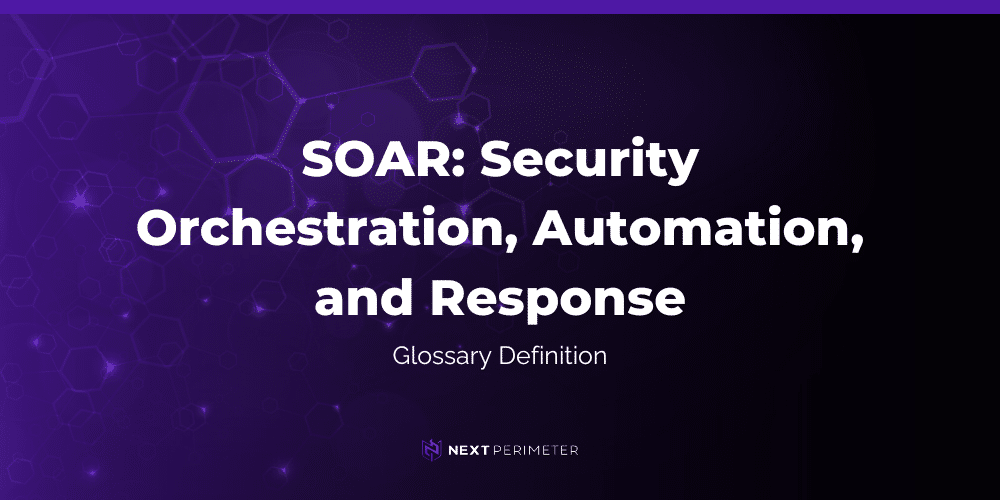
What is SOAR?
SOAR (Security Orchestration, Automation, and Response) is a comprehensive solution designed to improve the efficiency and effectiveness of security operations. It integrates disparate security tools and systems, automates routine processes, and coordinates incident response efforts, allowing security teams to work more quickly and efficiently.
By leveraging SOAR, organizations can effectively manage threats in real-time, with less manual intervention and greater accuracy.
Key Components of SOAR
1. Security Orchestration
Security orchestration is the process of connecting various security tools and technologies to function as a unified system. With so many security solutions operating in silos, orchestration allows these tools to communicate and work together. For instance, a SOAR platform can integrate a firewall, threat detection software, and endpoint protection to create a seamless defense system that automates the exchange of critical data and actions.
2. Automation
Automation is a core feature of SOAR that eliminates the need for manual intervention in repetitive tasks. This might include tasks like threat analysis, malware scanning, and initiating incident response protocols. By automating these functions, SOAR reduces the workload on security teams, allowing them to focus on more complex threats and strategic initiatives.
3. Response
The response component of SOAR involves the execution of pre-configured actions to mitigate or remediate detected threats. Once a potential incident is identified, the SOAR system can automatically respond by isolating compromised systems, blocking malicious traffic, or alerting the appropriate personnel. This capability speeds up the incident response process and helps minimize damage.
Benefits of SOAR
Improved Efficiency
SOAR automates many time-consuming tasks, such as threat intelligence gathering and incident analysis, reducing the strain on security teams. This allows them to focus on more critical tasks while improving overall operational efficiency.
Faster Incident Response
With SOAR, response actions can be automated and executed in real-time, drastically reducing the time it takes to detect, analyze, and remediate security incidents.
Enhanced Accuracy
By minimizing human involvement in routine tasks, SOAR reduces the likelihood of errors. Automation ensures consistency, accuracy, and a faster resolution to security events.
Scalability
SOAR is designed to scale with your organization’s security needs. As threats increase or security infrastructure becomes more complex, SOAR platforms adapt without the need for significant increases in manual labor.
SOAR vs. SIEM
Although SOAR and SIEM (Security Information and Event Management) are often mentioned together, they serve distinct functions in security operations.
SIEM focuses on logging and analyzing security events by collecting data from various sources. It helps detect threats and provides insights.
SOAR, on the other hand, goes a step further by orchestrating responses to those threats, automating tasks, and integrating multiple security tools for a faster, more comprehensive resolution. In many cases, SOAR builds upon SIEM data to execute more efficient and coordinated responses.
Real-World Applications of SOAR
SOAR is used across industries to improve threat detection and response times.
For example, organizations in healthcare can use SOAR to quickly identify and isolate threats targeting patient data. In the financial sector, SOAR helps mitigate fraud by automating the process of identifying and blocking suspicious transactions.
These are just a few examples of how SOAR’s automation and orchestration capabilities are applied in real-world scenarios to protect businesses from a wide range of cyber threats.
Challenges and Considerations
While SOAR provides many benefits, there are challenges to consider when implementing it. The complexity of integrating multiple security tools can be daunting, especially in organizations with a large number of legacy systems.
Additionally, while SOAR automates many tasks, it still requires skilled personnel to manage and optimize the platform. Without proper configuration and management, organizations may not realize the full potential of SOAR.
Conclusion
SOAR is an essential tool in the modern cybersecurity landscape, offering automation, coordination, and rapid response to security incidents.
By integrating multiple systems and reducing the manual burden on security teams, SOAR allows organizations to scale their security efforts and better protect their data and infrastructure.
With its ability to respond quickly to threats and automate routine tasks, SOAR is becoming indispensable for security operations in organizations of all sizes.
